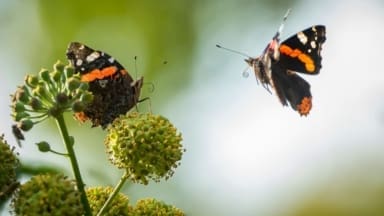
The nationwide citizen science survey, the Big Butterfly Count helps to assess the health of our environment. Butterflies are counted because they are key biodiversity indicators for scientists as they react very quickly to changes in their environment. Any declines are an early warning for other wildlife losses.
Butterflies are also vital parts of the ecosystem as both pollinators and components of the food chain and as a species, they are sadly also under threat. Numbers of butterflies and moths in the UK have decreased significantly since the 1970s – a warning that cannot be ignored.
Originally launched in 2010, the count has rapidly become the world’s biggest survey of butterflies. Over 64,000 citizen scientists took part in 2022, submitting 96,257 counts of butterflies and day-flying moths from across the UK.
The data from the count helps Butterfly Conservation, who run the survey, to identify important trends in species and assist the vital planning required to protect butterflies from extinction, as well as understanding the effect of climate change on wildlife.
For further information on the survey, including details on taking part can be found here.

